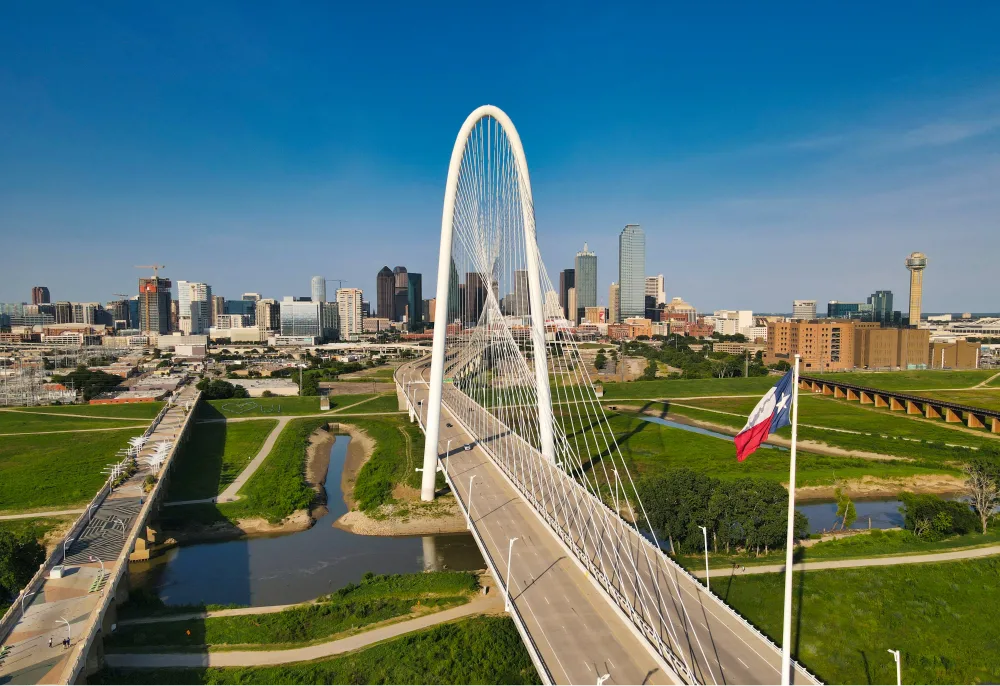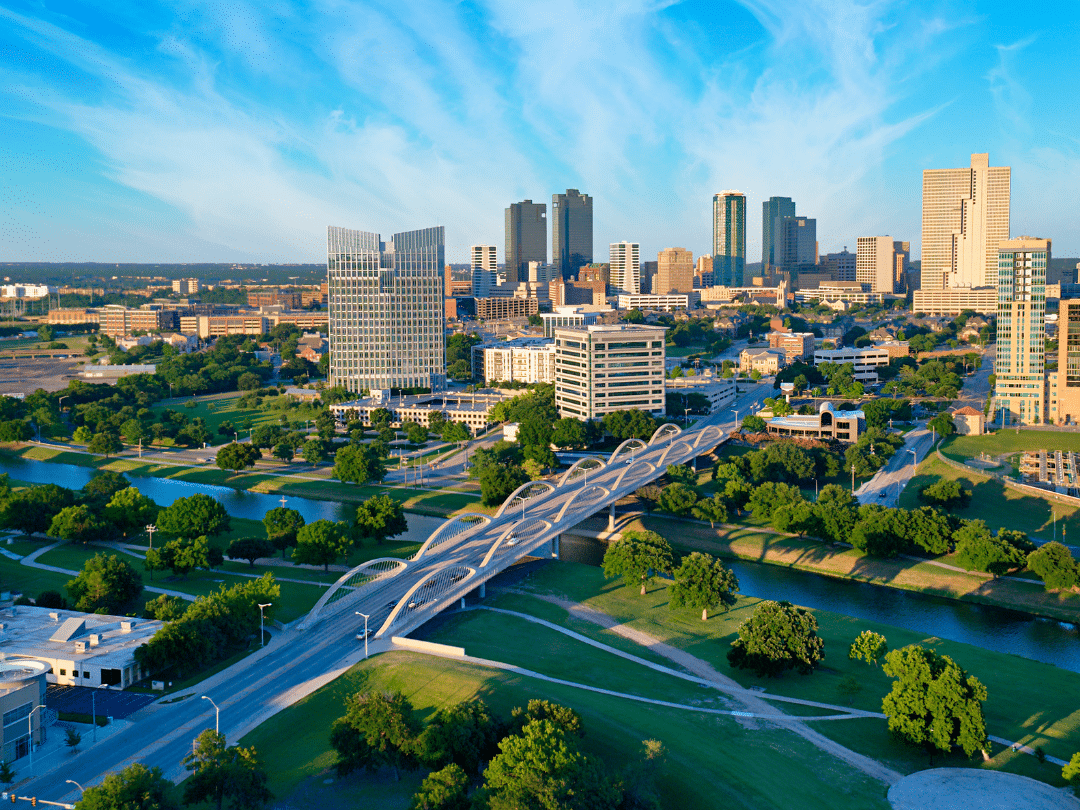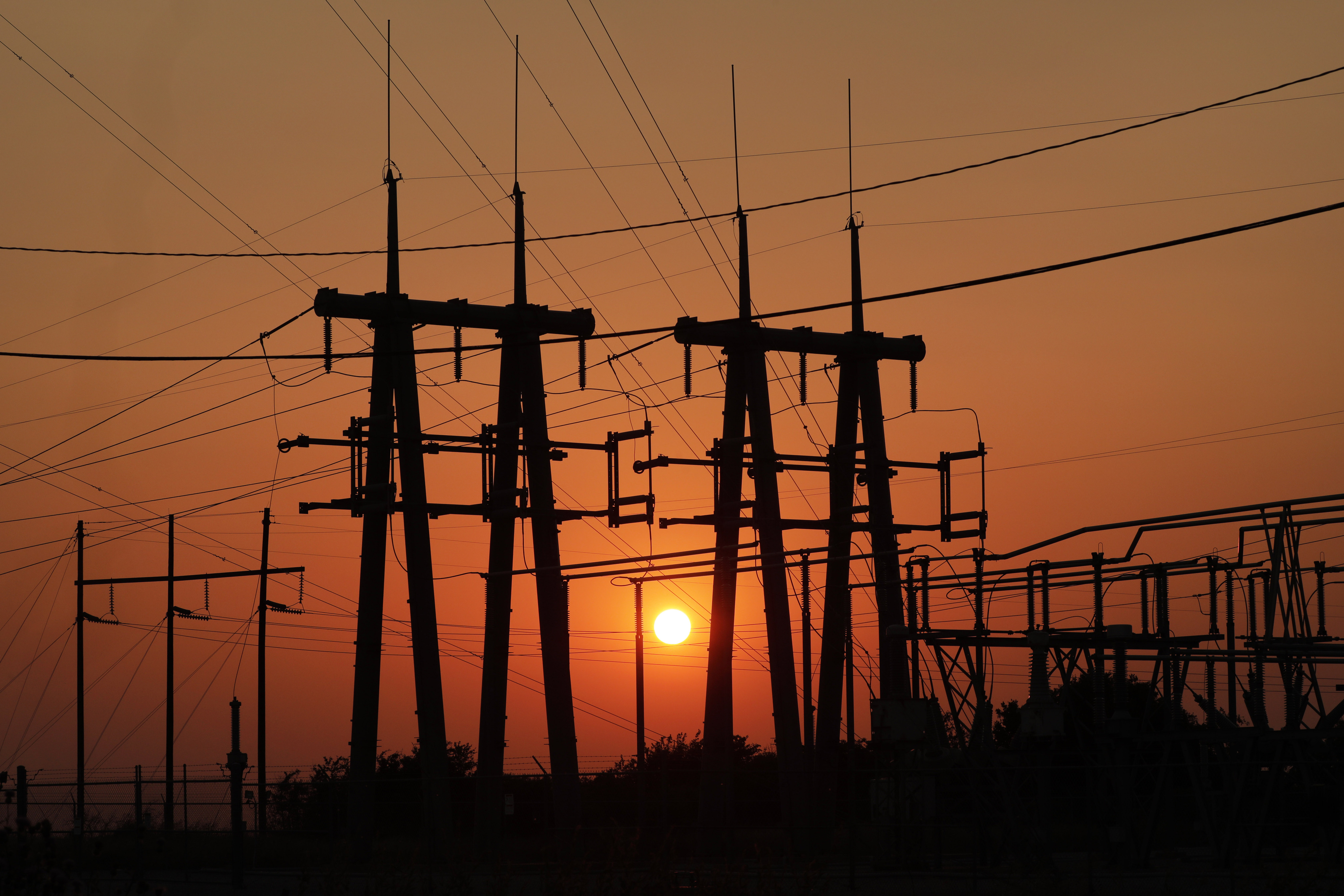
Whether you’re chasing new job opportunities, craving a warmer climate, or simply ready for a change of scenery, Dallas, Texas has likely popped up on your radar. It’s one of the fastest-growing cities in the U.S., and for good reason. With its booming economy, diverse culture, and Southern charm, Dallas has a lot to offer. But like any major move, relocating to a new city comes with big decisions. If you’re considering planting roots in the Big D, here’s what you need to know before making your move to Dallas, TX.
Cost of Living: Affordable, But It’s Rising
One of the biggest reasons people consider moving to Dallas is the relatively affordable cost of living—especially when compared to other major cities like Los Angeles, New York, or San Francisco. Dallas has long been seen as a city where your dollar stretches further, particularly when it comes to housing. But as more people flock to the city, that affordability is starting to shift.
Housing is still cheaper than in many coastal metros, but prices have been steadily climbing. According to recent data, the median home price in Dallas has risen significantly over the past few years due to high demand and limited inventory. The rental market has also tightened, with average rents in desirable neighborhoods seeing noticeable increases. While you can still find a decent apartment or home at a relatively fair price, the days of “dirt cheap” Dallas living are starting to fade.
Beyond housing, everyday expenses like groceries, gas, and utilities are also edging upward. Inflation and the overall growth of the city have impacted prices across the board. That said, Dallas still doesn’t have a state income tax, which can make a big difference in your take-home pay and overall cost of living—especially if you're moving from a state like California or New York.
Transportation is another factor to consider. Since Dallas is largely a driving city, owning a vehicle is often necessary. Between car payments, insurance, gas, and maintenance, transportation costs can add up quickly. However, compared to cities with higher public transit costs or toll-heavy commuting routes, many residents still find Dallas to be more manageable.
One area where Dallas shines is dining and entertainment. Whether you’re grabbing tacos from a local food truck or seeing a show in the Arts District, there are plenty of affordable (and free!) things to do. And because the city is so spread out, you’re likely to find something that fits your lifestyle and budget.
In short, while Dallas may not be quite as cheap as it once was, it remains an attractive option for those looking to get more value without sacrificing big-city amenities. Just be sure to budget wisely and keep an eye on the evolving housing market—especially if you’re planning to buy.

A Thriving Job Market—Especially in Tech, Finance, and Healthcare
Dallas has become one of the top cities in the U.S. for job seekers, and it’s not hard to see why. The Dallas-Fort Worth metroplex has a diverse and rapidly expanding economy, with major industries like tech, finance, and healthcare leading the charge. Whether you’re just starting your career or looking to take the next big step, Dallas offers a wealth of opportunities across many sectors.
The tech scene in Dallas is growing fast, earning the city a place among the country’s emerging tech hubs. Major companies like Uber, Oracle, and Amazon have expanded operations in the area, while local startups continue to attract venture capital and talent. With strong support for innovation and lower business costs compared to Silicon Valley, the tech field is full of potential here.
Finance is another cornerstone of the Dallas economy. The city is home to regional offices and headquarters for numerous national banks, investment firms, and insurance companies. With a strong business climate and no state income tax, Dallas attracts professionals from all over the country who want to grow their careers while keeping more of their paycheck.
Healthcare is thriving as well, thanks to a robust network of hospitals, research institutions, and healthcare providers. Organizations like Baylor Scott & White, UT Southwestern Medical Center, and Texas Health Resources are some of the area’s largest employers, offering a wide range of roles for both clinical and administrative professionals.
Whether you’re in IT, nursing, finance, or operations, Dallas has a job market that’s both stable and growing. The city’s central location also makes it a strategic hub for companies with national and global reach. Simply put, if you’re moving to Dallas for work, you’re headed in the right direction.

Climate: Hot Summers, Mild Winters
Dallas is known for its sunny skies and long stretches of warm weather, making it an ideal destination for people who love sunshine and outdoor activities. However, the city’s climate has a few key features that are important to consider before making the move. Primarily, it’s characterized by hot summers and relatively mild winters—though not without some occasional surprises.
Hot Summers
Summers in Dallas are undeniably hot and often intense, with average temperatures regularly climbing into the high 90s and even exceeding 100°F (38°C) during peak months, typically from June through August. The combination of high temperatures and humidity can make the heat feel even more oppressive, especially for those who are not used to the Texas summer swelter.
Despite the heat, Dallas residents have adapted, and air conditioning is practically a necessity—most homes, apartments, and businesses are well-equipped with cooling systems. Outdoor activities can still be enjoyed, but you’ll find many people opting for early morning or late evening outings to avoid the midday heat. Poolside gatherings and shaded patios are popular during the summer months, as are indoor activities like visiting air-conditioned museums, malls, and movie theaters.
Mild Winters
In contrast to the sweltering summers, winters in Dallas are much milder. While temperatures can dip into the 30s or 40s (around 0-5°C) during cold spells, snowfall is rare, and when it does happen, it typically doesn’t accumulate much. The city experiences very few days of freezing temperatures, which makes for a relatively comfortable winter. This mild climate is a huge selling point for those moving from colder regions—if you're tired of long, harsh winters, Dallas will be a refreshing change.
That said, Dallas is not immune to the occasional cold snap. Ice storms, though infrequent, do occur and can cause disruption to travel and power lines. These events typically don’t last long, but when they do happen, it’s important to be prepared for temporary inconveniences like road closures or power outages.
What to Expect Year-Round
While summer temperatures can be a challenge for those unused to the heat, the overall climate in Dallas provides plenty of opportunities to enjoy outdoor activities year-round. Whether it’s hitting the hiking trails in the cooler months, visiting local parks, or attending outdoor festivals, Dallas’ sunny, temperate winters make it an attractive place for those who want to stay active year-round without the harsh conditions of northern winters.
In summary, Dallas offers a climate with long, hot summers and pleasant, mild winters—perfect for those who prefer sunshine and warmth. Just make sure to plan accordingly for the summer heat and prepare for the rare winter cold snap!
Diverse Neighborhoods: There’s Something for Everyone
One of the best things about Dallas is the variety of neighborhoods to choose from, each with its own vibe:
Uptown: Trendy, walkable, and close to downtown. Ideal for young professionals.
Bishop Arts District: Artsy, eclectic, full of local shops and cafes.
Plano and Frisco: Great for families, with excellent schools and newer homes.
Deep Ellum: A haven for creatives, known for its live music and street murals.
Highland Park: Upscale and scenic, with some of the city’s most beautiful homes.
Finding the Best Auto Injury Chiropractor in Dallas, TX: Your Guide to Recovery and Reli
If you've been involved in an auto accident, finding the right care is crucial for your recovery. One of the best options available to you is seeking the expertise of an auto injury chiropractor in Dallas, TX. Chiropractors specializing in auto injury treatment can offer non-invasive and effective methods to help alleviate pain, restore mobility, and improve your overall health. But how do you choose the right one?
One top choice for individuals in Dallas seeking exceptional care is Premier Injury Clinics Dallas - Auto Accident Chiropractic. This clinic is renowned for its comprehensive approach to auto injury treatment, utilizing advanced chiropractic techniques to help patients recover quickly and safely. Whether you're dealing with whiplash, back pain, or any other auto-related injuries, their experienced chiropractors provide personalized treatment plans designed to meet your needs.
When searching for the best auto injury chiropractor in Dallas, TX, it’s essential to consider their experience and specialization. Look for a clinic like Premier Injury Clinics Dallas - Auto Accident Chiropractic, where the team is highly trained in handling auto accident cases and understands the unique nature of car accident injuries.
In conclusion, if you’ve been hurt in a car accident, working with an auto injury chiropractor in Dallas, TX can significantly improve your recovery process. With the right chiropractor, such as those at Premier Injury Clinics Dallas, you can get back on your feet and feel better faster.
Contact Us:
Premier Injury Clinics Dallas — Auto Accident Chiropractic
3434 West Illinois Avenue, Dallas, TX, 75211, United States
(214) 304–2291
https://premierinjuryclinicsofdfw.com/dallas-chiropractic/
Social Profile:
Yelp
Find Us on Googles maps:
https://maps.app.goo.gl/4zcZRPVgKMteLEcQ6